Listen now on Apple, Spotify or YouTube
In This Edition
- How Hollywood has reacted to the Minecraft movie
- How the movie/TV industry differs from games
- The risks of adapting games into movies and TV shows
Hello! We’re back. And not talking tariffs this time (but they’ll be back, sadly).
This week’s Feature is with the team behind the Sonic movie and Tomb Raider TV show (amongst others), discussing the opportunities and risks in adapting video games into linear entertainment. I met the team at the Screen Play event, which took place in London last week. Check out the fancy video above, or enjoy the write-up below (or why not both?)
The team behind the Sonic movie has found itself inundated with phone calls and messages.
The Minecraft movie has launched and broken numerous Box Office records, and producers across the TV and movie industry are on the hunt for the next video game smash.
Story Kitchen is a specialist in video game adaptations. It is best known for the Sonic The Hedgehog movies and the Tomb Raider TV show, but it has a number of other projects in development based on It Takes Two, House of the Dead, Streets of Rage, Vampire Survivors and many more. So, for a lot of Hollywood, it was the first place to call.
“Every time we have one of these adaptations, there seems to be this shock that people actually showed up for it,” says producer and Story Kitchen co-founder Dmitri M Johnson.
“It’s what we've been saying from day one, which is treat the fans with respect, treat the games as if it's art, have a level of respect throughout the process, and you will see the results that we've seen in other mediums, like comic books and novels. The issue was never games. The issue was who was adapting the games and how they were being adapted.
“You see this kind of reactive approach from Hollywood every time you get a Mario or a Minecraft. We're fortunate enough that we're one of the first calls [people make when something like this happens], but we also make it clear we're not heat seekers. We're not going to try to take a game out because Minecraft had a big weekend. We're still going to bring the same level of quality that we always strive to do.”
Story Kitchen’s other co-founder Mike Goldberg adds: “It's been extreme but not to be unexpected. Hollywood is a very reactive industry and has always been.”
I don't think this is going away. I don't think that this is a fad. This is where all of the emotionally resonant IP is coming from. There is going to be more opportunities.”
- Simon Pulman, Pryor Cashman
Ultimately, if video game companies are interested in adapting their IP – whether it’s been released or not – into a film or TV show, the opportunities are there.
“It's an amazing moment to do it,” Goldberg continues. “We've never had a better moment to potentially adapt your game into TV or film. So if you are intrigued or excited or steadfast that this is a direction you want to go, you 100% should kick the tires and be inquisitive to explore how that would look.”
Simon Pulman, entertainment lawyer and partner at Pryor Cashman, says: “But don't feel pressured. I don't think this is going away. I don't think that this is a fad. This is where all of the emotionally resonant IP is coming from. There is going to be more and more opportunities.”
Don’t lose your rights
It’s exciting, but Johnson, Golberg and Pulman warn of the dangers of rushing in.
“I've been doing this for a while and there are myriads of cultural differences between [film/TV and games], and unless you've directly engaged in it, you might underestimate that,” Pulman says.
“The default position of a Hollywood studio is always going to be: ‘we'll take everything, except what you expressly reserve. So we are going name the things that you are going to keep in the entire tapestry of the IP.’ Whereas a video game company, and this is similar with a lot of Asian companies and anime and manga companies as well… they're thinking from the perspective of ‘well, we are licensing to you the rights to do a movie.’”
Goldberg adds: “The number one risk is losing your rights or freezing your rights, including your rights to the property, to the copyright, to the trademark. Anything that could take away your rights, whether it's long term or in perpetuity, that is awful. Because you lose your rights, you lose your IP, you've lost the ability to grow your game or franchise.”
Pullman again: “Ultimately there's another party probably financing, unless you are Nintendo and co-financing the actual production. So you're going to have to give them some rights. But the really difficult situation is when perhaps production has been made, you can't get those rights back.”
“You have producers chasing game rights now who have never touched a game controller in their life. We don't want those people trying to adapt games.”
- Dmitri M. Johnson, Story Kitchen
Johnson says game studios should seek expert advice, whether that’s from them or anyone else, because there is always a risk of a “Hollywood smash and grab horror story.”
“Sadly it is a heat seeking business where you have producers chasing game rights now who have never touched a game controller in their life,” he explains. “We don't want those people trying to adapt games. That’s not saying that [everyone] needs to [be a gamer]. We've had some of the best writers on our projects who don't play games. They bring a different side of it. But with the people shepherding the project, you want to have that respect.”
Slow and steady
Adapting video games to the big or small screen takes time. Pulman says that one of the biggest shocks that games companies have when moving into this space is just how long it takes, and there’s no short-cutting the process.
Goldberg explains: “Not that it's swift to make a game. But Hollywood definitely has a unique cadence to it where there are moments of speed and then there's absolutely moments of perceived stillness. Even putting a game adaptation creative package together, everyone's working speculatively to get there. You sell the game as a movie. There’s a rights deal done… and then a writer is starting to write where he, she or they is paid to write. Everyone else is waiting for the solid script to come in to jump in and give notes. It's a very individualized creative process initially, until you get into pre-production. And once you get into pre-production, that's where it goes from one or two or six people working on the adaptation, to 50 or 250 or 500 people.”
“If the developer or publisher, or both, is not involved or is minimally involved, it will be to the detriment of the adaptation.”
- Mike Goldberg, Story Kitchen
There are other challenges. A lot of the movie and TV industry is centralised in Los Angeles, whereas video games are a global business. Simply getting writers and producers together with the game makers isn’t easy to do. And it can take up a lot of valuable time for studios, who will need to prepare assets, materials, character bibles and so on.
“It is distracting,” Pulman says. “And if your team gets distracted and pulled away from focusing on the most important thing, which is the community around the game, then that can be a significant creative and business risk.”
A true collaboration
A lot of the successful video game adaptations of today have been partly developed with the game creators themselves. Mojang was actively involved with Minecraft, Nintendo co-funded the Mario movie and Neil Druckmann is one of the writers and directors of The Last of Us TV show. And Story Kitchen says this approach is essential.
“It is mission critical,” Goldberg says. “If the games rights holder, the developer or publisher, or both, is not involved or is minimally involved, it will be to the detriment of the adaptation. It's worse than playing your hand in Las Vegas at the at the craps table. They need to be involved. You would be erasing the creative engine that has built these characters, these worlds, these tones, these fans.”
Johnson adds: “But there's also an understanding that has to happen upfront. We've seen when game companies have too much control and that can also end up as bad as the original Mario movie. It’s really finding that balance.”
How receptive is Hollywood when it comes to working with video game creators?
“When [Dimitri] started this 15, 16 years ago, it was probably 75/25 not super receptive to being respectful,” Golberg says.
Johnson cuts in: “25 is too high.”
Back to Goldberg: “That’s why we had a lot of horror stories from that smash and grab-esque behavior from Hollywood. Now, I would say that it’s like 85/15 that they understand. And for the ones that don't, it's really to their detriment, and we specifically go out of our way to not work with them.”
Brand Damage
Not all games will work as films. Goldberg says that sometimes the IP hasn’t been developed enough, and there are some things that Hollywood won’t touch right now, such as R-rated animated films.
And, of course, there are still high-profile examples of adaptations that get it wrong, such as last year’s Borderlands movie, which was a critical and commercial flop. Goldberg says there’s always a risk of brand damage when it comes to adapting your IP, but Johnson says even a bad movie can prove worthwhile.
“The fear after the original [1993] Mario movie, specifically by Nintendo and others, was the fear of brand damage,” Johnson explains. “But without naming specific projects, we now have data that shows even what are maybe perceived as bad adaptations, still have a healthy bump on the game sales side. Can you have a not great film, or series that you had hoped was better, but see a 70% uptick and still feel like it was worth that experience?”
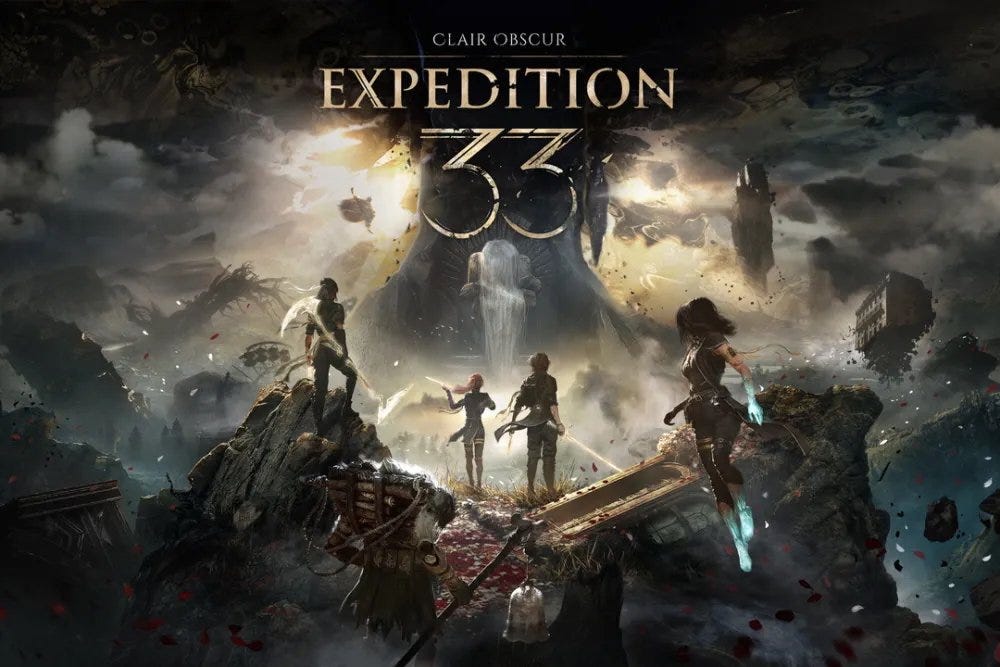
Trust, Trust, Trust
So much of it comes down to trust, Goldberg and Johnson says. Identifying and finding people who you trust will do right by you and your IP.
“It's about the people,” Johnson says. “A relationship that started on a less than 48-hour trip to Japan, meeting Toru Nakahara at Sega, has now become a friendship and a friendship that has led to a fortunate opportunity to do multiple adaptations with Sega.”
He adds: “We have multiple publisher and developer relationships like that. With Hazelight, we’re fortunate to be working with them on several of their games right now. And again, it's trust, it's friendship. It's that belief that, at the very least, because it's fucking hard to get film and TV made, but at the very least they know we're going to do everything we can to try. There's no guarantee it's going to happen, but we will definitely lose sleep to try to make that happen, and do it with the highest integrity.”
That’s it for today’s Feature Show. We’ll be back later in the week for our News/Analysis Show, where will discuss tariffs, Government support and the physical games market.


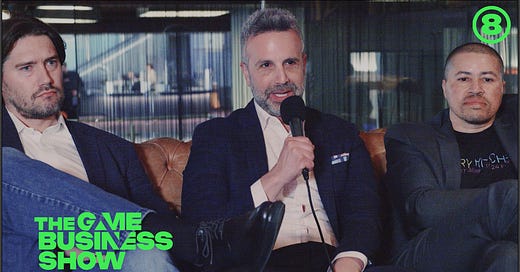


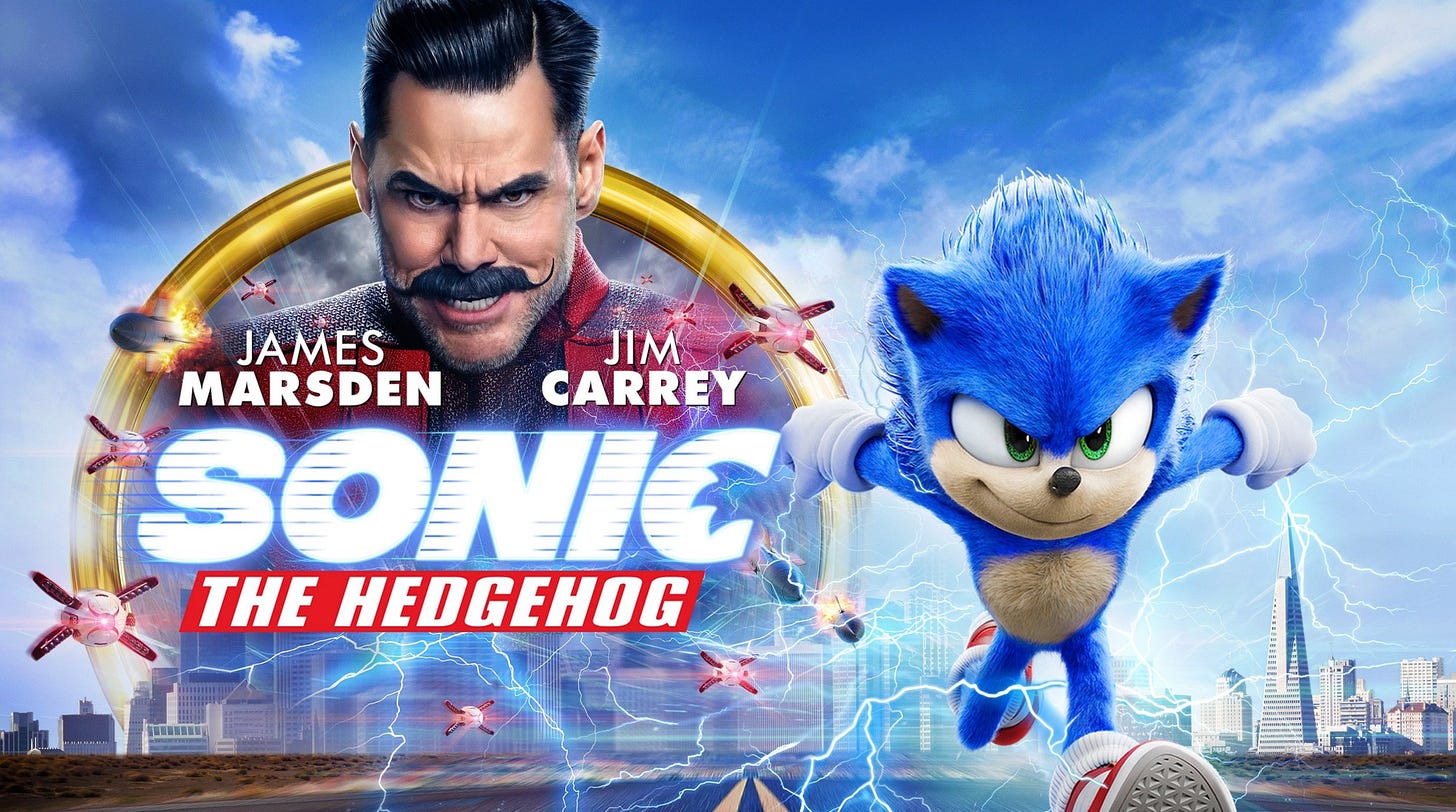
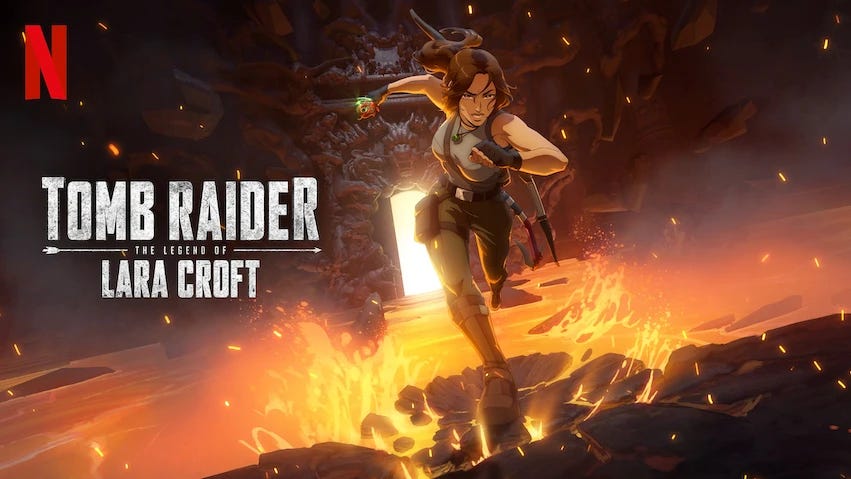


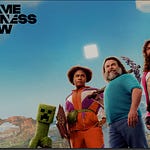





Share this post